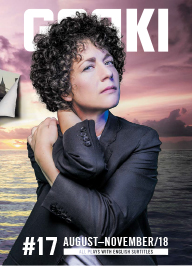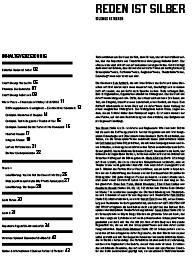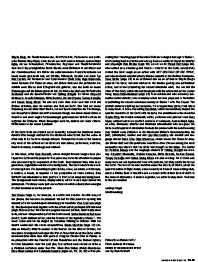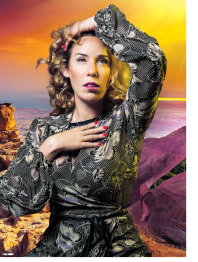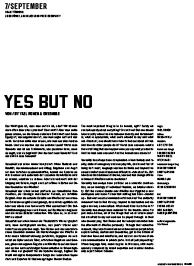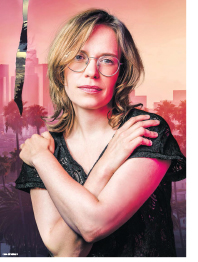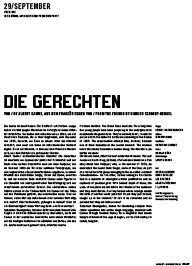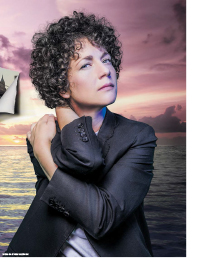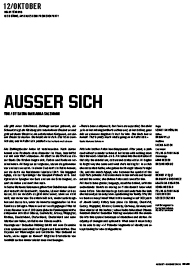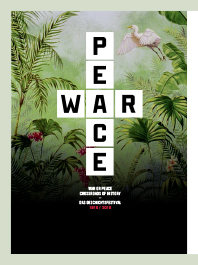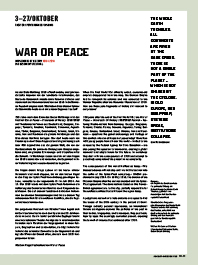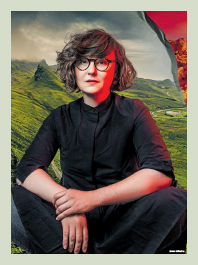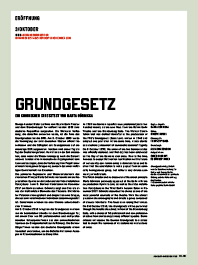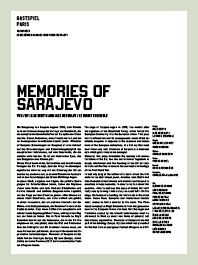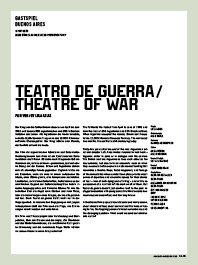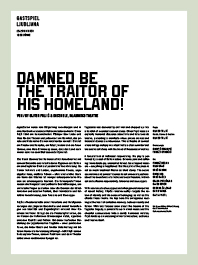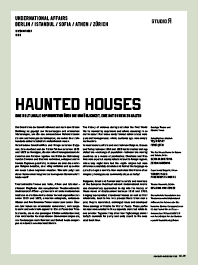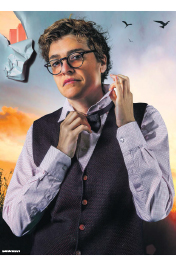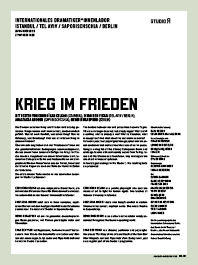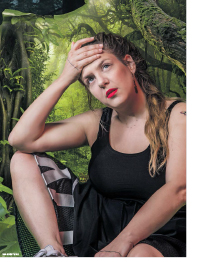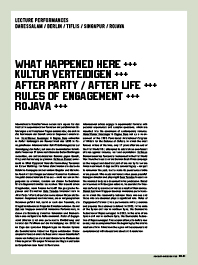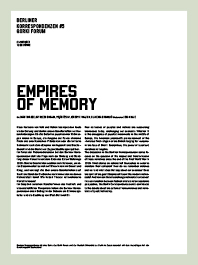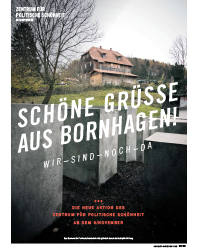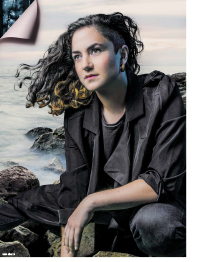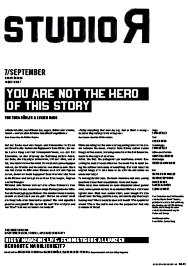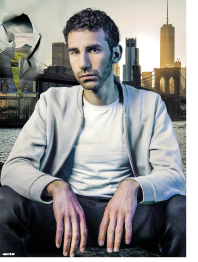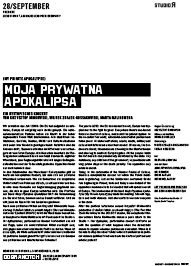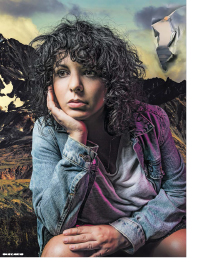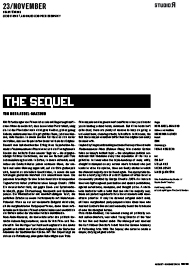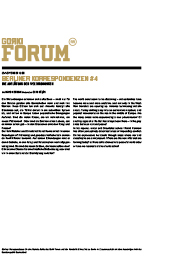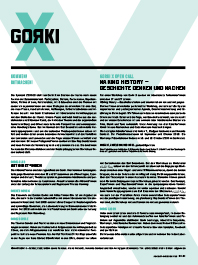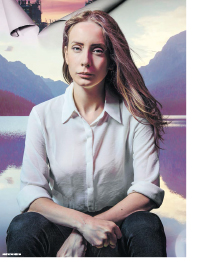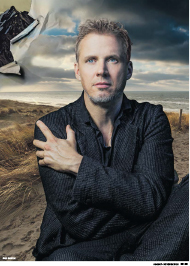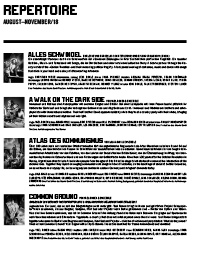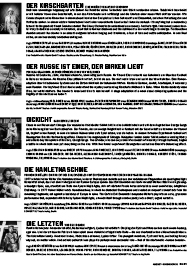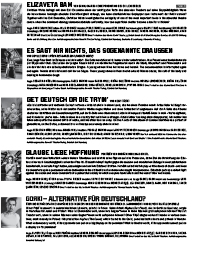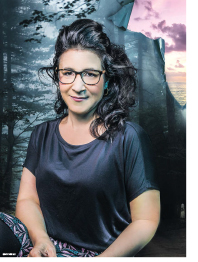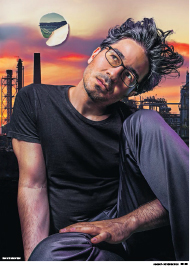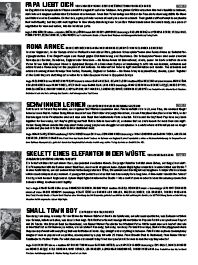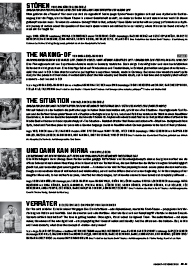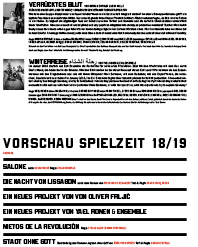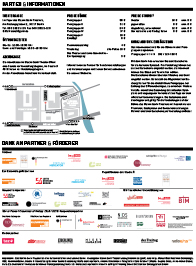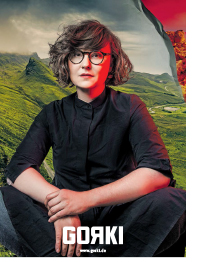Gorki authors
Yael Ronen
WITH/// Yael Ronen, Irina Szodruch, Orit Nahmias, Sasha Marianna Salzmann, Marta Górnicka, Sivan Ben Yishai, Mehdi Moradpour, Ebru Nihan Celkan, Anastasiia Kosodii, Necati Öziri, Suna Gürler, Nora Abdel-Maksoud, Falk Richter
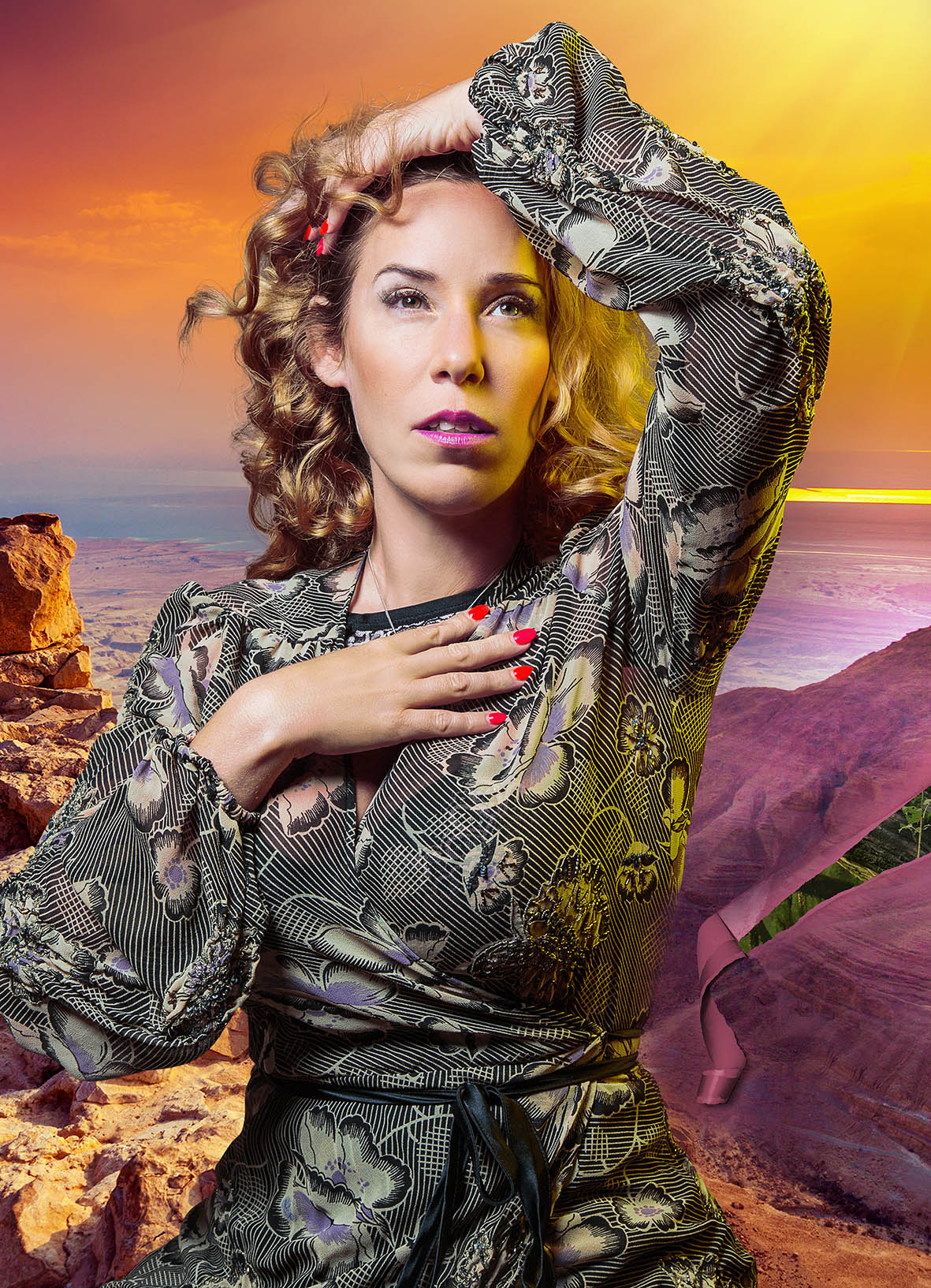
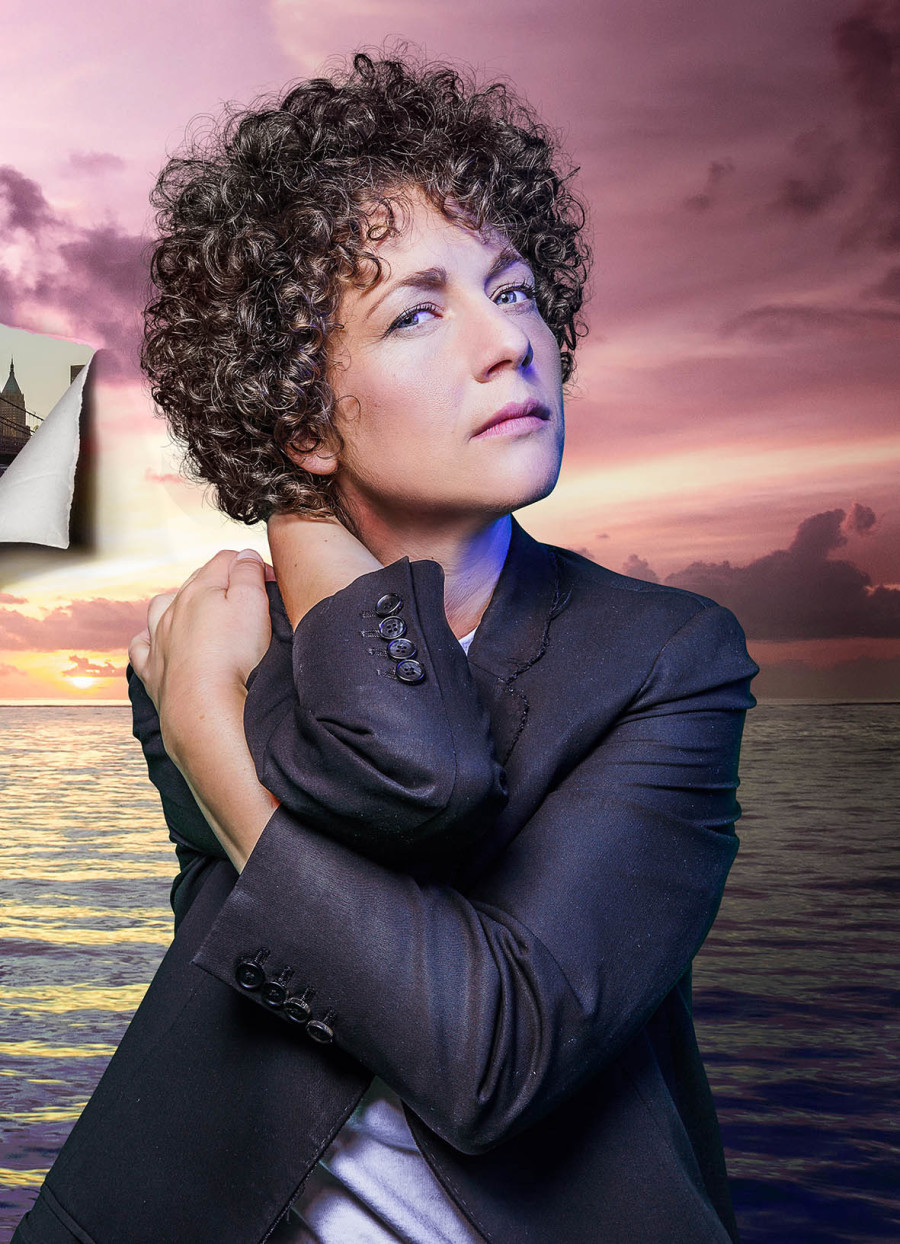
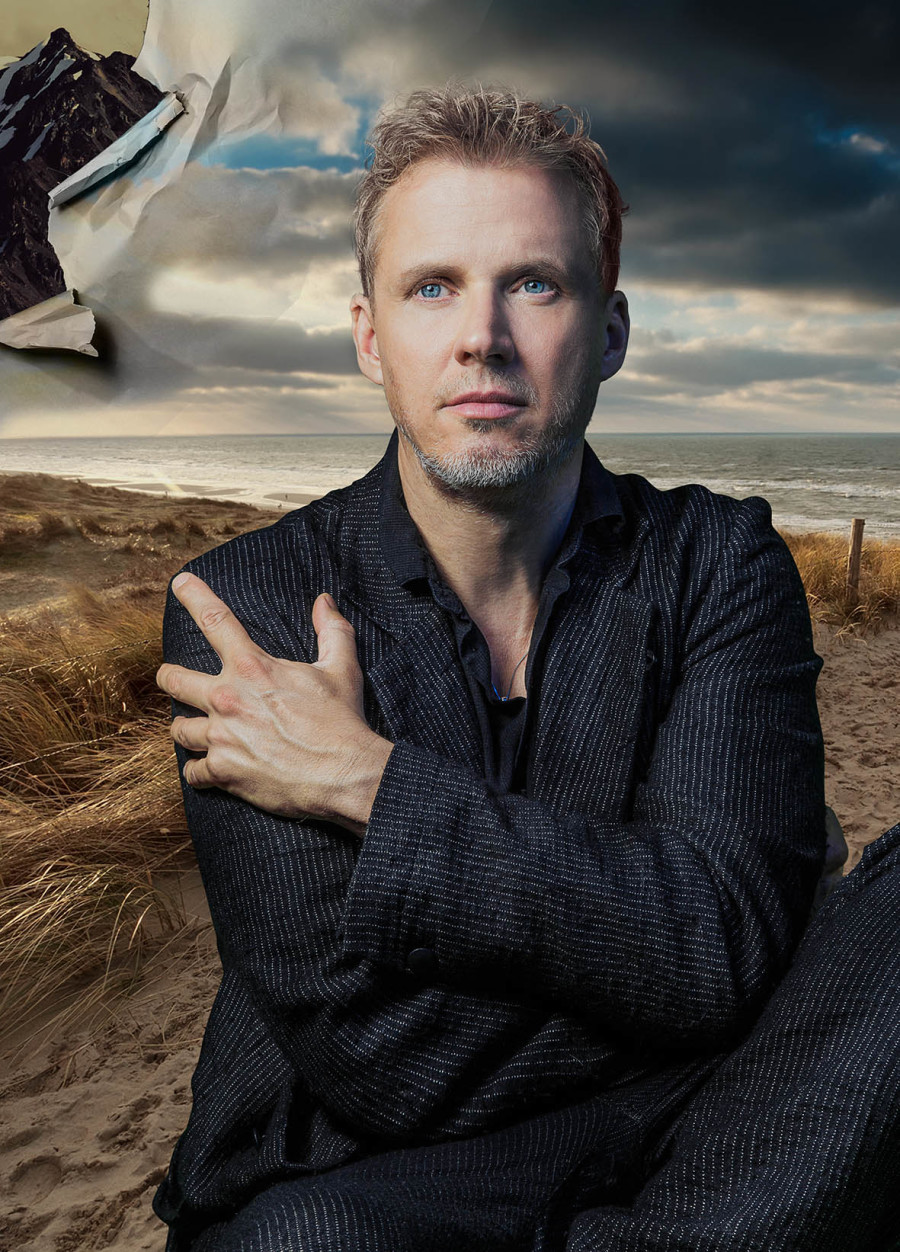
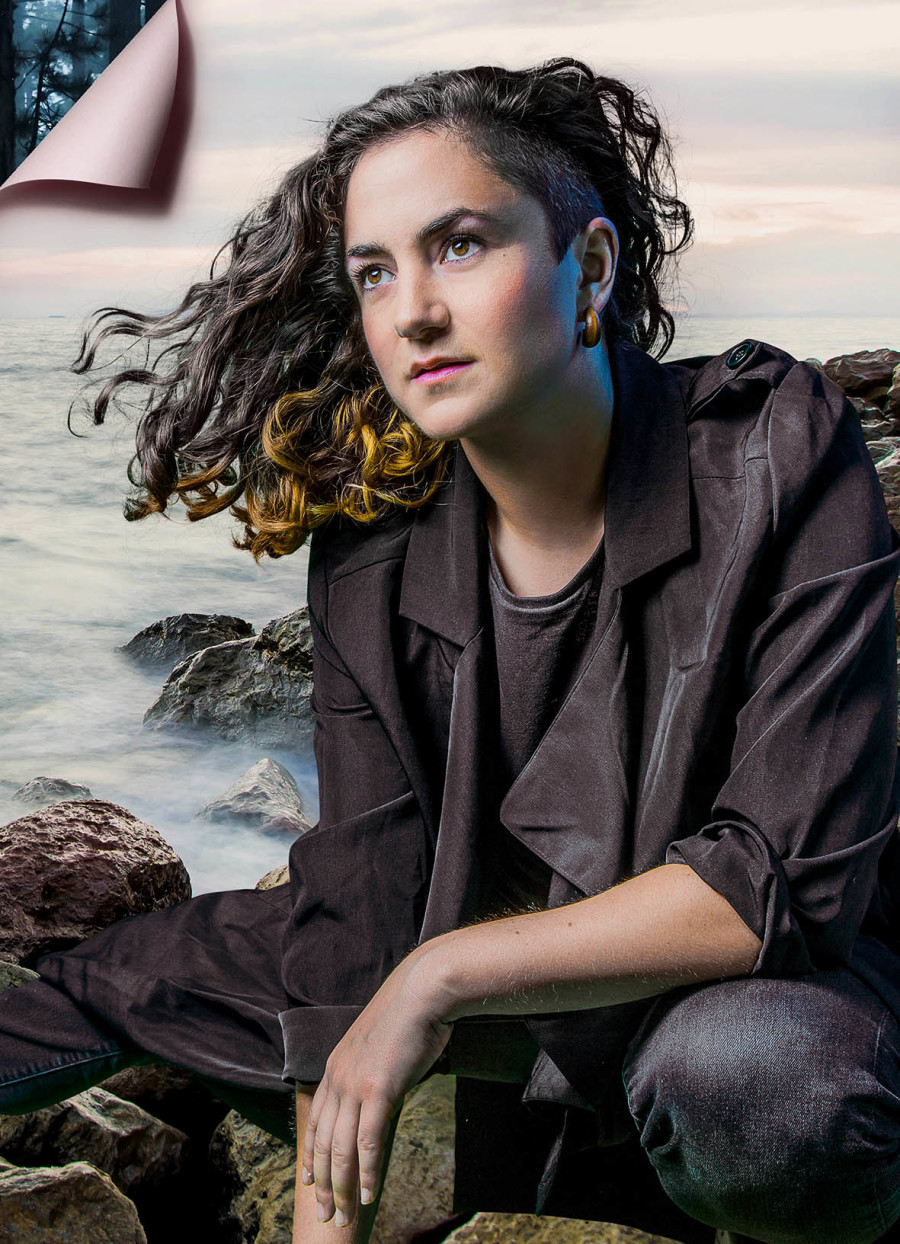
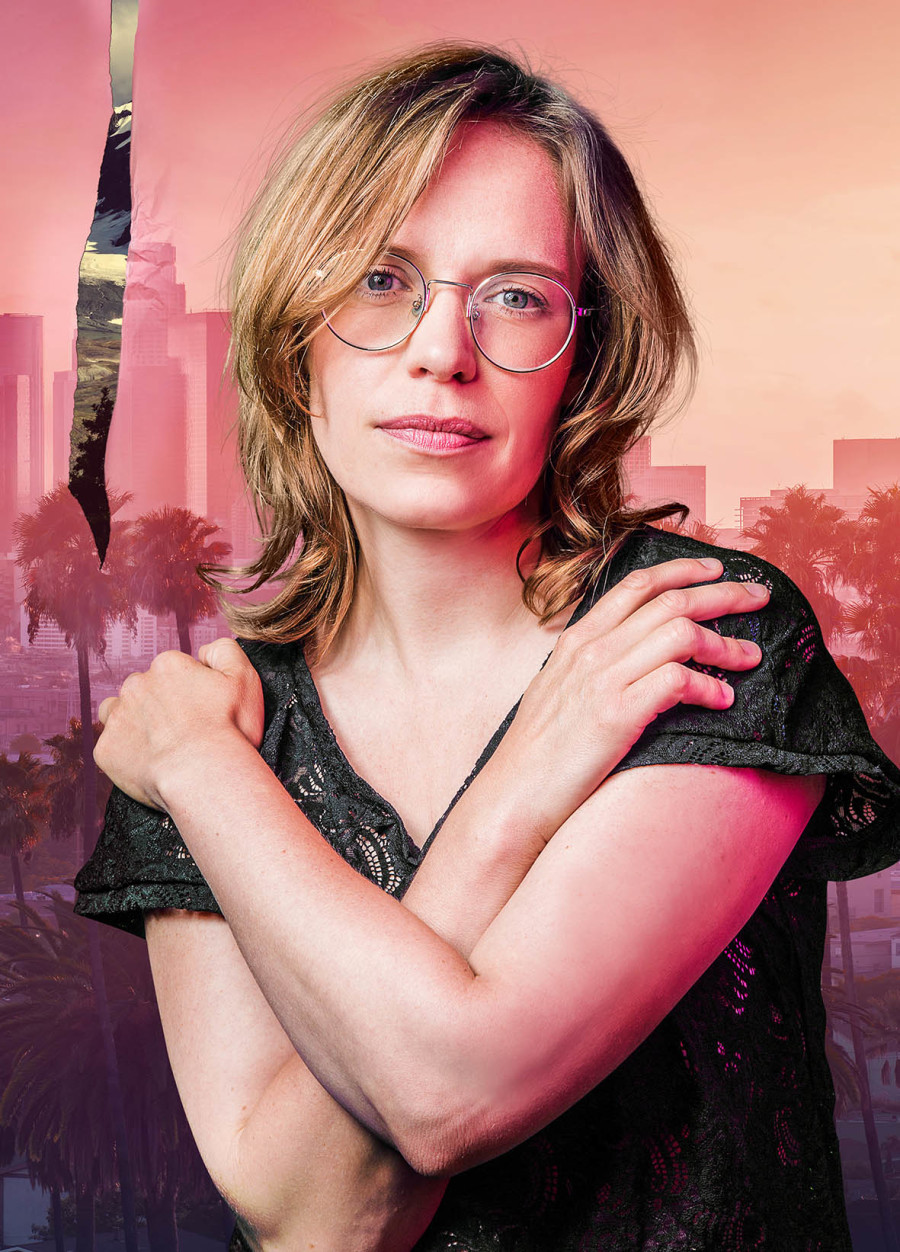
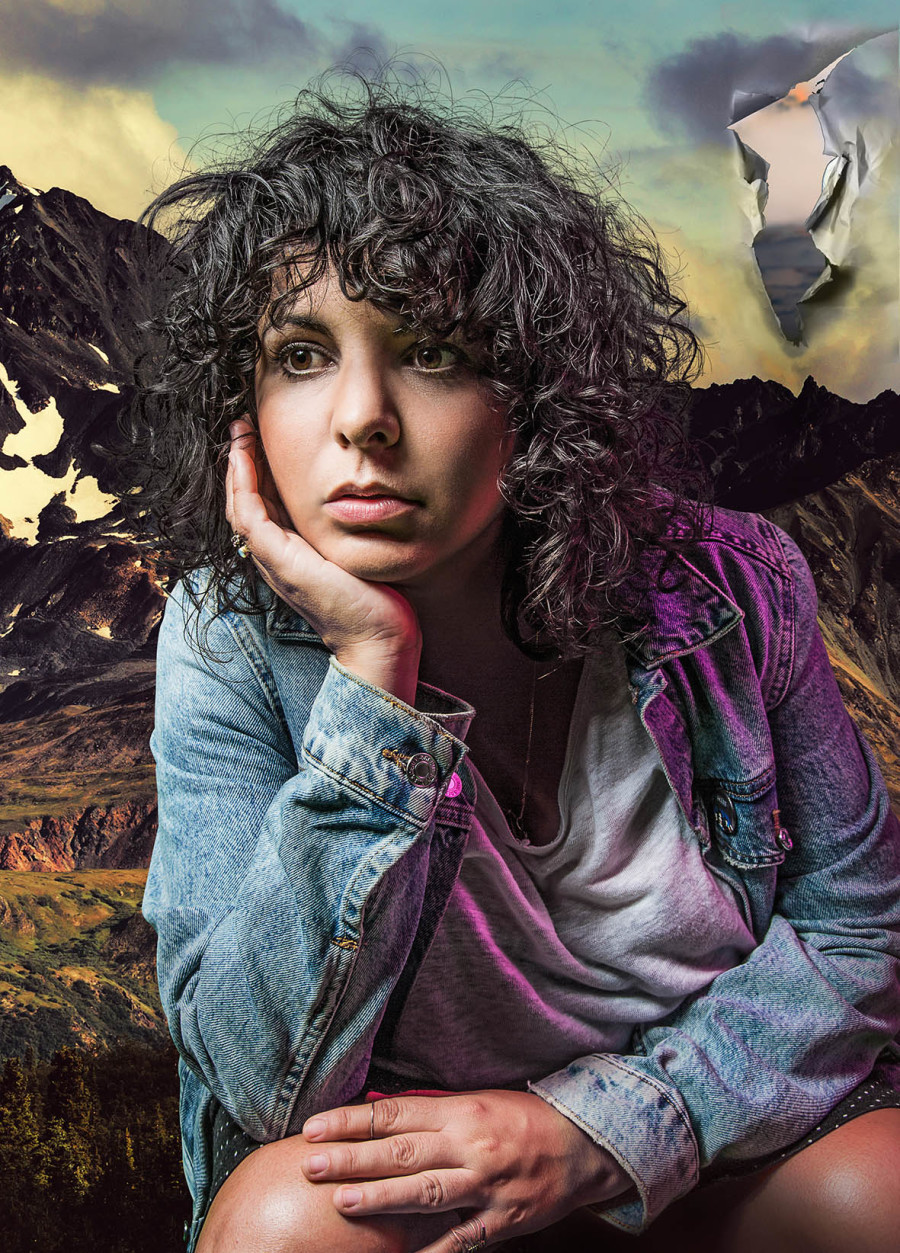
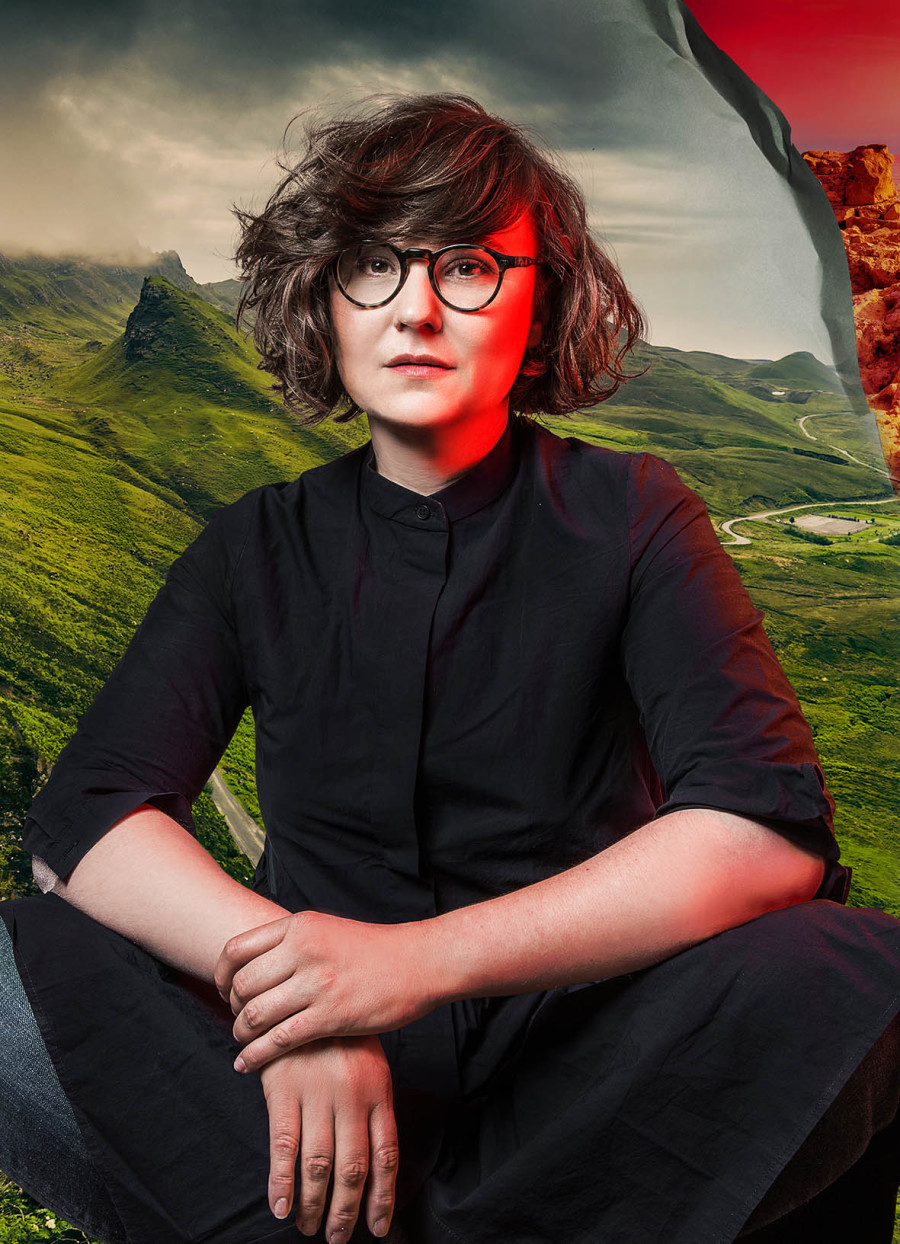

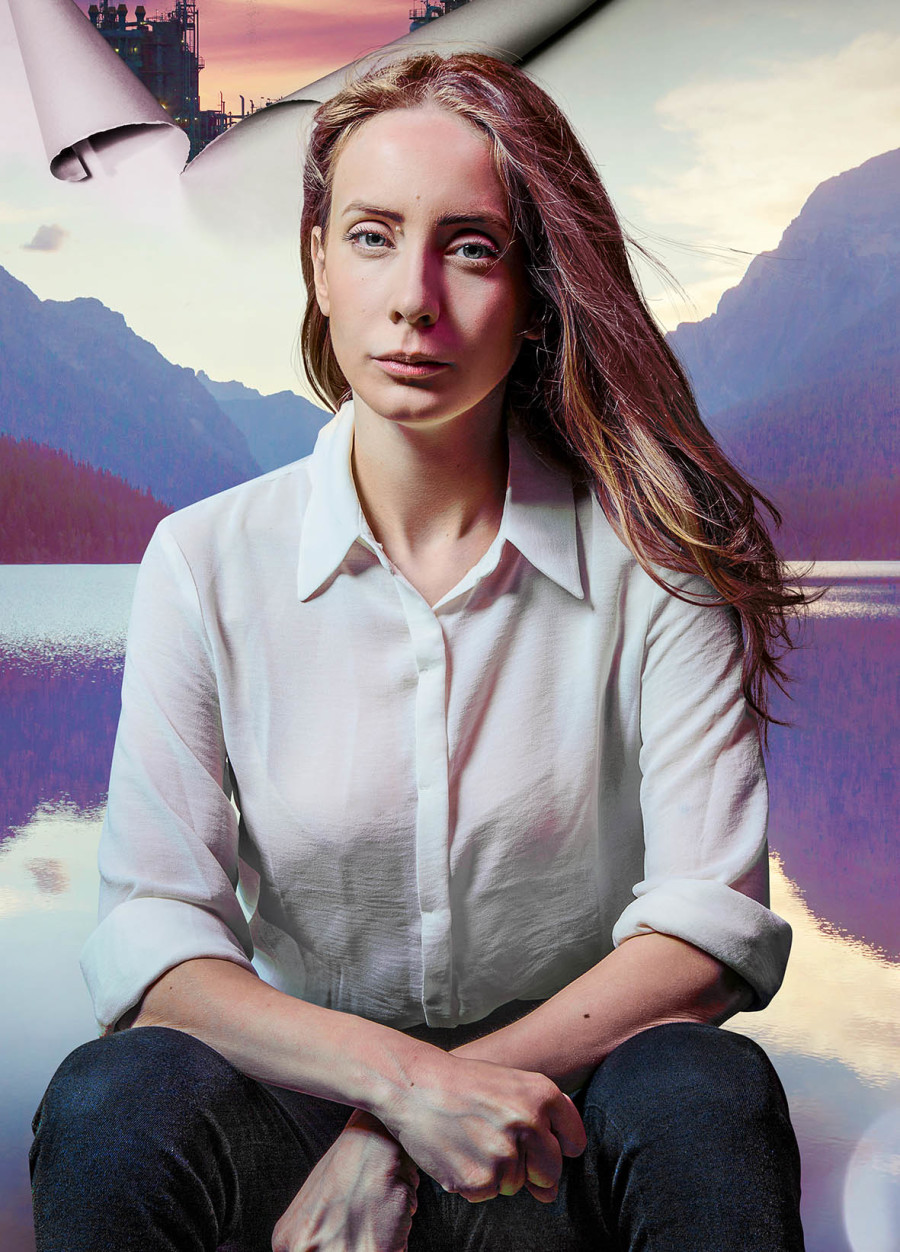
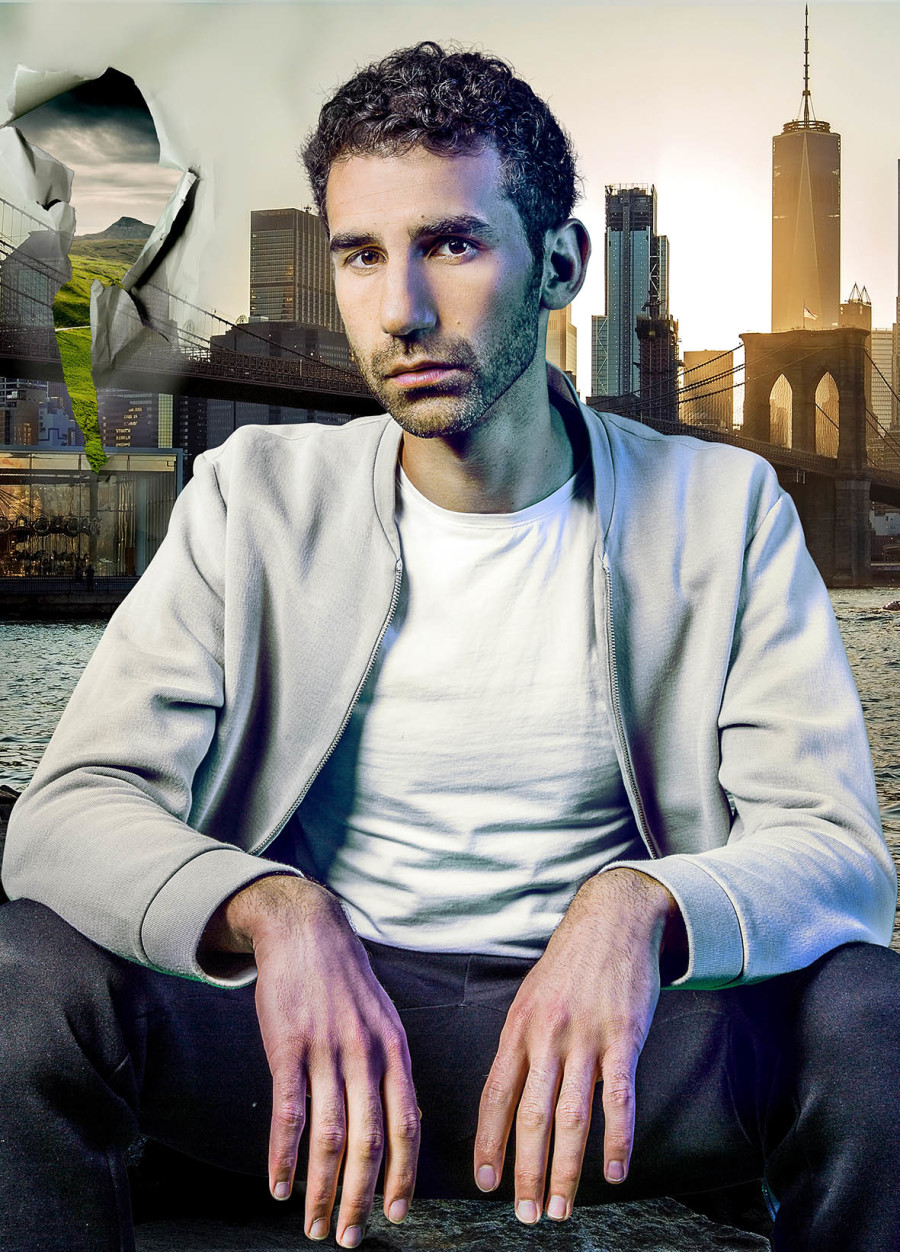
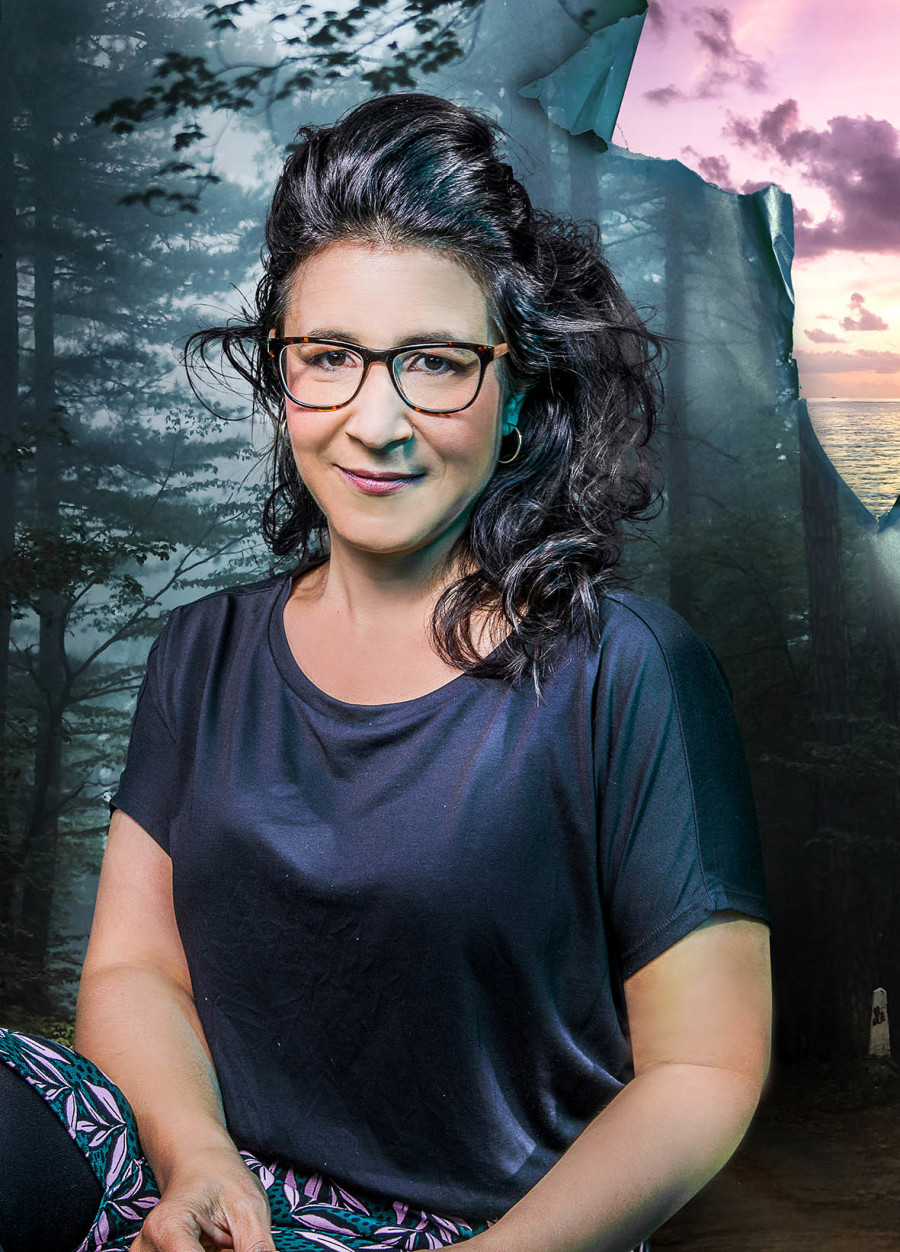
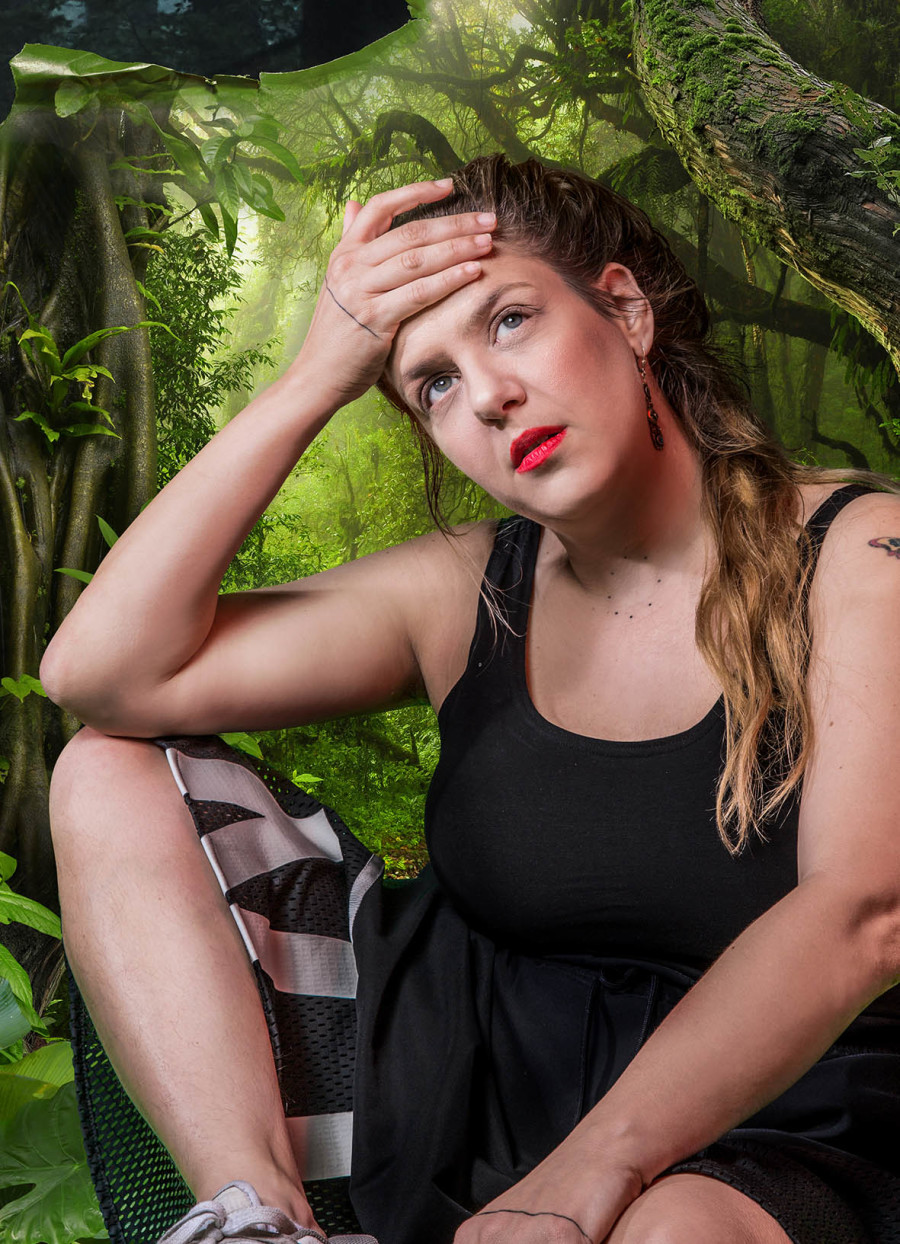
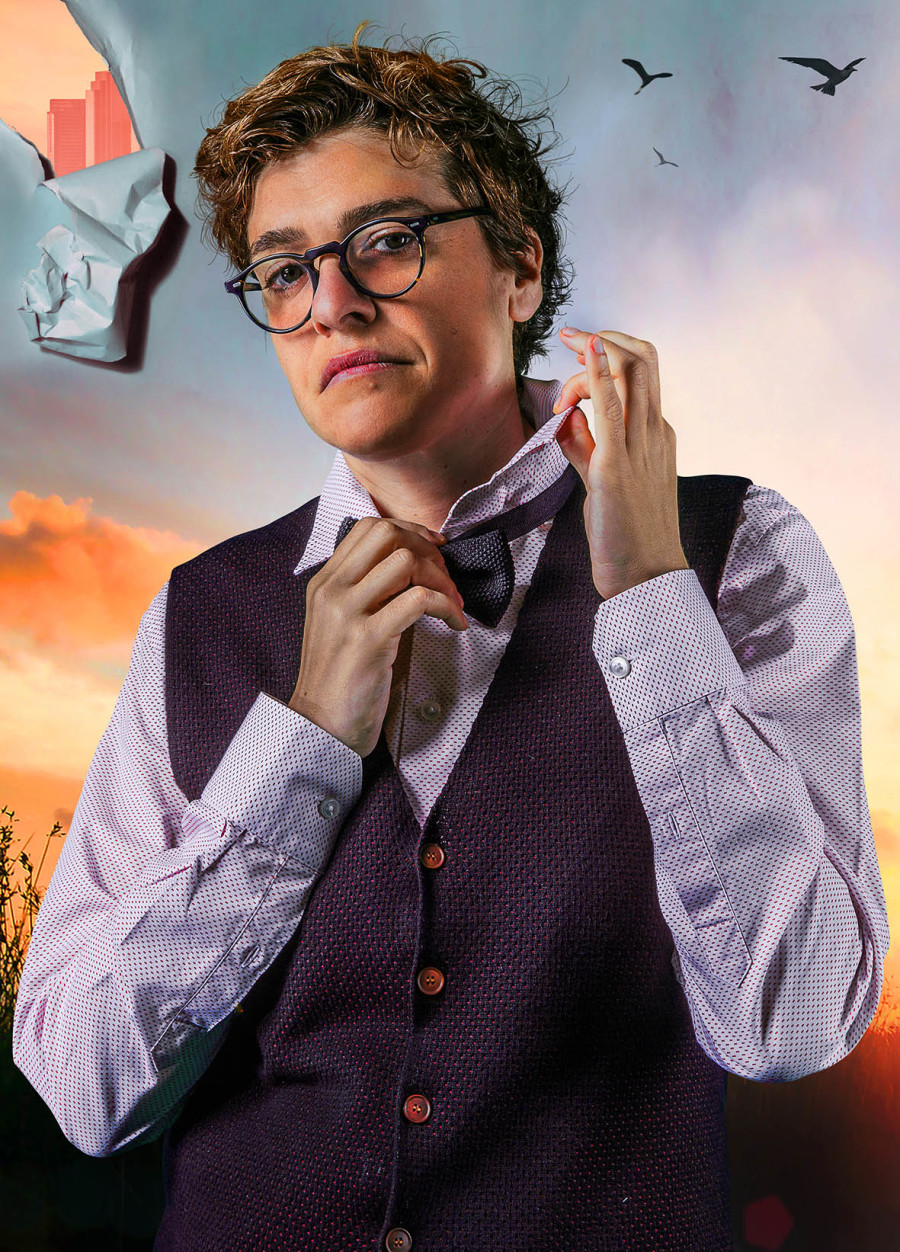
Editorial of the magazine by Ludwig Haugk / Chefdramaturg of Gorki
At the Gorki texts are created out of necessity, because the theatrical canon doesn’t offer enough material for the stories we want to tell. But the »new« is often only to be found in strange detours. Perhaps this is one of the reasons why most of the authors at the Gorki are also actors, performers, directors, theatre directors, dramaturgs and whatnot.
In this issue, artist Esra Rotthoff, whose straight-forward images have por- trayed the Gorki and its people for ve years now, turns her attention to people who are searching for expression at the Gorki. Texts demand time, time is or- ganisation, organisation works in the background. The Gorki wants to be a writ- er’s background. For something to grow (a tree, a text, an event), a landscape, a context, a house, is required. In her perspective on these authors, Esra Rotthoff was interested in their position in front of an imagined background. The backgrounds have cracks, display others, which lie as a layer behind the palimpsest. It’s simply never just one surface on which a description emerges of what harasses us as the present.
Yael Ronen [page 4], for example, is a writer and director. As with many of her pieces, she has also co-produced Yes but No (the premiere opening this season) with her kindred-spirit dramaturg and translator Irina Szodruch [page 6]. She developes texts together with the actors (we’ve portrayed Orit Nahmias [page 38] as a proxy. With her solo programmes and brilliant, relentlessly ironic texts, she’s an indispensable part of the Gorki sound). Sasha Marianna Salzmann [cover], Gorki resident author, was the founder of the legendary Studio . Her novel Außer sich will be staged by Sebastian Nübling in October. With her libretti condensed into choral compositions, Marta Górnicka [page 12] cre- ates an intensity hitherto unseen in the theatre. On the third of October, her new piece Grundgesetz will open the War or Peace festival at the Gorki, which commemorates more than 100 years of Krieg im Frieden (War in Peace), in co-production with the Federal Cultural Foundation and the Federal Agency for Civic Education. Over the past year, four authors have worked on texts in a literature workshop under this title. Sivan Ben Yishai, Mehdi Moradpour, Ebru Nihan Celkan and Anastasiia Kosodii [pages 20, 39, 18, 32] will be pre-
senting their resulting plays at the end of October in staged readings in Studio . Interweaving theatre practice and writing is also a matter of course for director and playwright Falk Richter [page 33], as well as for Necati Öziri [page 26], who worked as a dramaturg and Studio director at the Gorki, successfully rocked the Gorki stage as an author with GET DEUTSCH OR DIE TRYIN’, and now conducts interdisciplinary theatre research at the Berliner Festspiele. Suna Gürler [page 24] is an acclaimed star as an actress in Sibylle Berg’s plays at the Gorki, has also worked at the theatre guiding non-professional actors, and is now presenting her second directorial work, You Are Not the Hero of This Story, which she has developed with the actors and author Lucien Haug. Nora Abdel-Maksoud [page 28] is an actress and now extremely suc- cessful author-director, who resolutely writes her own plays and in November is publishing her second venomous comedy in Studio with The Sequel. The portrait series is anything but complete; it’s a fragmentary gallery that refers to many more. It lacks: the writing Ensemble, which has decisively shaped the speci c character of the Gorki with its texts; the sensational writer-of-worlds Sibylle Berg; the theatre columnist, writer, performer and political voice Mely Kiyak, without whom we couldn’t conceive of ourselves; Ayham Majid Agha, an actor, lmmaker, director and theatrical intensi cator who has given the Gorki crucial spaces of association towards the present with the award-winning play Skelett eines Elefanten in der Wüste and Müller’s Hamletmaschine; the poet, philosopher, curator and cool guy Max Czollek; the novelist and lan- guage thinker Deniz Utlu; Olga Grjasnowa, whose novels Der Russe ist einer, der Birken liebt and Die juristische Unschärfe einer Ehe are among the most successful new stories that the Gorki has brought to the stage. The Center for Political Beauty and the language creators of Talking Straight are miss- ing. Krzysztof Minkowski, Arsinée Khanjian, Mirko Borscht, Nurkan Erpulat, Tunçay Kulaoğlu and Hakan Savaş Mican are also missing. All of them and many more are not represented here with pictures, but they create the text at the Gorki. The text of the new narrative about the old city of Berlin, about the synchronization of ight routes, about sexuality in times of never-ending wars, about a Middle East in Neukölln and a closed traf c school (lack of staff) in the maze of discourses. If silence is golden, we prefer to stay silver. Welcome to the new season!
Thanks to all authors in this series for their trust, Anna Bause for the organization, Ludwig Haugk for his thoughts for the concept and Gorki for inspiring me since 5 1/2 years with its community and topics!
Gorki Magazine
Impressum: Das Maxim Gorki Theater ist eine Kulturinstitution des Landes Berlin. Herausgeber Maxim Gorki Theater Leitung Shermin Langhoff, Jens Hillje, Marcel Klett Redaktion Dramaturgie, KBB, Kommunikation, Studio R Übersetzung Summer Banks Gestaltung María José Aquilanti, Amelie Strothmann Fotografien Esra Rotthoff (Maske: Sophia Dietz, Anna-Helen Giese); Seite 23: Zentrum für Politische Schönheit Plakatgestaltung Seite 10: María José Aquilanti / Artwork: Jeffrey W. Walling Druck BVZ Berliner Zeitungsdruck GmbH
